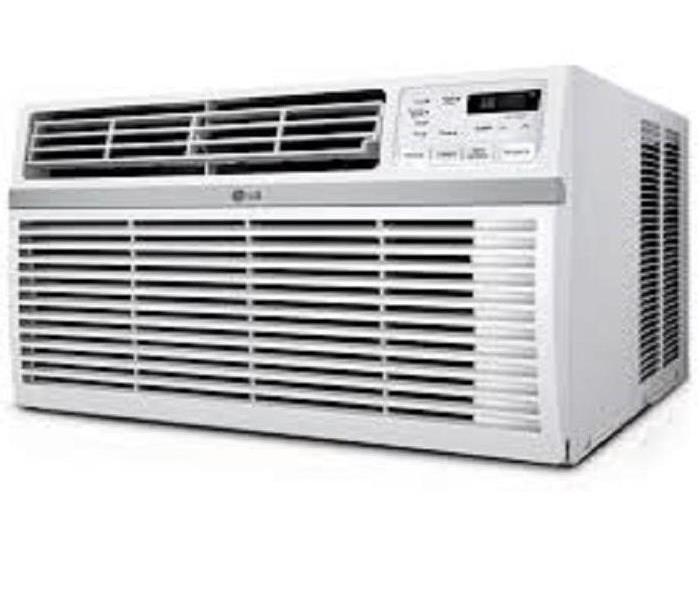Air Conditioner Maintenance
7/27/2018 (Permalink)
With the past two weeks of high heat and high humidity in the Northeast, air conditioners have been working overtime. Let’s take a look at keeping them in tip top condition!
An air conditioner's filters, coils, and fins require regular maintenance for the unit to function effectively and efficiently throughout its years of service. Neglecting necessary maintenance ensures a steady decline in air conditioning performance while energy use steadily increases.
Air Conditioner Filters
The most important maintenance task that will ensure the efficiency of your air conditioner is to routinely replace or clean its filters. Clogged, dirty filters block normal airflow and reduce a system's efficiency significantly. With normal airflow obstructed, air that bypasses the filter may carry dirt directly into the evaporator coil and impair the coil's heat-absorbing capacity. Replacing a dirty, clogged filter with a clean one can lower your air conditioner's energy consumption by 5% to 15%.
For central air conditioners, filters are generally located somewhere along the return duct's length. Common filter locations are in walls, ceilings, furnaces, or in the air conditioner itself. Room air conditioners have a filter mounted in the grill that faces into the room.
Some types of filters are reusable; others must be replaced. They are available in a variety of types and efficiencies. Clean or replace your air conditioning system's filter or filters every month or two during the cooling season. Filters may need more frequent attention if the air conditioner is in constant use, is subjected to dusty conditions, or you have fur-bearing pets in the house.
Air Conditioner Coils
The air conditioner's evaporator coil and condenser coil collect dirt over their months and years of service. A clean filter prevents the evaporator coil from soiling quickly. In time, however, the evaporator coil will still collect dirt. This dirt reduces airflow and insulates the coil, reducing its ability to absorb heat. To avoid this problem, check your evaporator coil every year and clean it as necessary.
Outdoor condenser coils can also become very dirty if the outdoor environment is dusty or if there is foliage nearby. You can easily see the condenser coil and notice if dirt is collecting on its fins.
You should minimize dirt and debris near the condenser unit. Your dryer vents, falling leaves, and lawn mower are all potential sources of dirt and debris. Cleaning the area around the coil, removing any debris, and trimming foliage back at least 2 feet (0.6 meters) allow for adequate airflow around the condenser.
Coil Fins
The aluminum fins on evaporator and condenser coils are easily bent and can block airflow through the coil. Air conditioning wholesalers sell a tool called a "fin comb" that will comb these fins back into nearly original condition.
Condensate Drains
Occasionally pass a stiff wire through the unit's drain channels. Clogged drain channels prevent a unit from reducing humidity, and the resulting excess moisture may discolor walls or carpet.
Window Seals for Room Air Conditioners
At the start of each cooling season, inspect the seal between the air conditioner and the window frame to ensure it makes contact with the unit's metal case. Moisture can damage this seal, allowing cool air to escape from your house.
Preparing for Winter
In the winter, either cover your room air conditioner or remove and store it. Covering the outdoor unit of a central air conditioner will protect the unit from winter weather and debris.
https://www.energy.gov/energysaver/maintaining-your-air-conditioner






 24/7 Emergency Service
24/7 Emergency Service
